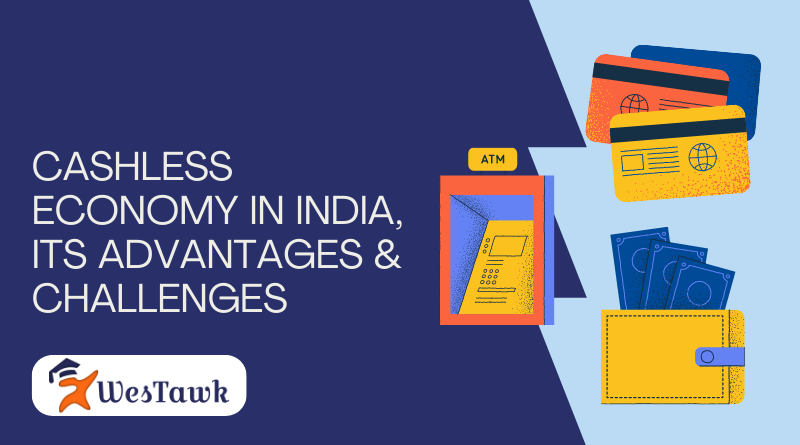Cashless Economy In India, Its Advantages & Challenges
The government of India is trying to make Indian economy cashless, not Indian actually every country is trying to make their economy cashless. Today we are gone a talk about why Indian government wants to make Indian economy cashless? Or what is a cashless economy? Its advantages and challenges.
Cashless economy means the economy without cash, or you can say that the flow of cash does not exist within the economy. All the transactions are done by plastic money or electronic channels. Cashless economy means that you don’t need to carry cash to buy something, you can just make the transactions through your mobile wallet, plastic money i.e, debit card or credit card or through net banking.
Post demonetization the Centre is making a big push for online and card-based transactions in the country to achieve its target of becoming a largely cashless economy. Through these types of payment the government can easily track all the transaction. It helps in curb of blackmoney and also the circulation of fake currencies. The digital transactions are easy to use and you don’t have the burden to carry cash. It also reduce the production of currency notes and coins and this also reduce its production cost. The government can use the data coming from the cashless transactions to improve and analyse their policies. By using such data, officials can predict or identify the patterns of activity and use such information for urban planning for sectors like energy management, housing, and transportation. Cash is difficult to trace. Illegal activities like tax evasion, black money, etc can also be carried out with cash.
As cashless economy is very beneficial for our country but their are some challenges also. An increasing worry for many consumers is the data and cybersecurity issues of cashless payments aren’t well monitored. Also, on the flip side, consumers have privacy concerns that come with every transaction having a digital footprint. And what if a natural disaster or by some other means a cashless country’s supporting system gets knocked out—and it becomes a big problem for financial services? Many people doesn’t know how to use technology and many of them also don’t want to use these technology as they don’t trust them.
Despite the many new convenient ways consumers can pay for their goods and services, cash remains a trusted, secure, reliable way to pay. And it carries a tangible sense of worth, which is particularly handy when budgeting. Cards and mobile payments definitely provide flexibility, choices and convenience for consumers, but a full cashless economy is a difficult task in a country like India.




